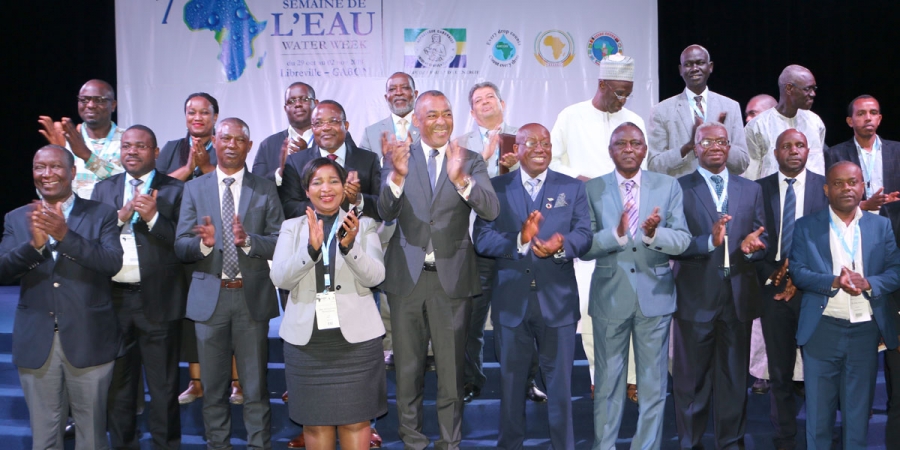In 2030, according to Sustainable Development Goal Six (SDG), formulated by the United Nations in 2015 and in force since 2016, access to water for all and all the amenities that underlie the issue must be guaranteed to the world's populations. Three years later, the issue of access to drinking water for the population still remains a complex issue on the African continent. Indeed, according to the Intergovernmental Panel on Climate Change (IPCC), about 320 million people in sub-Saharan Africa do not have access to safe drinking water. Overall, 50% of the continent's population is threatened by the difficulty of access to drinking water.
To discuss this issue of continental interest and find interim answers, the African Ministers' Council on Water (AMCOW) organized the 7th African Water Week, from October 29 to November 2, 2018 in Libreville, Gabon, on the theme "Towards achieving safely managed water and sanitation and water and sanitation security for all Africa”.
For 5 days, development partners, companies, international organizations and stakeholders in the water sector, including the African Water Association, shared their experiences and proposed solutions to the problem. At the end of their work, the main stakeholders and participants undertook to adopt the following resolutions, which should be submitted to the AMCOW Council of Ministers for adoption:
- Call on the African Union to make 2021 the year of water and sanitation in accordance with the World Water Forum to be held in Dakar in 2021;
- Call on governments to create an enabling environment, including mechanisms to ensure citizen participation, transparency, integrity and accountability in well-targeted water and sanitation interventions;
- Urge Member States to strengthen partnerships with the private sector and other non-state actors to increase investment in the water sector across Africa, through existing and innovative mechanisms and sources, aimed both at closing the water infrastructure gap and promoting access to innovative technologies, to create more resilient and sustainable livelihoods;
- Call for greater emphasis on the lack of human resources and the deterioration of data monitoring networks that hinders the availability of sufficient quantity and quality data on surface and groundwater resources;
- Prioritize safe and affordable drinking water for the poor and marginalized, including women and children, through joint sectoral planning and budget allocation, with particular attention to peri-urban and rural communities;
- Invite Member States to honor their commitment to safely managed sanitation in order to maximize benefits for health, education, gender equality, socio-economic development and environmental well-being;
- Invite Member States to improve operational systems to ensure water quality for the provision of scientific bases and laboratories to monitor the effectiveness of water treatment and distribution services;
- Urge AMCOW partners to develop more initiatives for water security in Africa, a platform for sharing data and information that can be easily used to support decision-making;
- Call on the African Development Bank, the African Union and AMCOW as well as other relevant partners to institutionalize a platform for regular interaction between Ministers of Finance and their counterparts, Ministers of Water and Sanitation on the sidelines of the African Development Bank's Annual General Assembly;
It should be noted that during this high-level meeting, AfWA facilitated sessions on the presentation of the main results of its RASOP and AfriCap programs as well as on the AfriAlliance project. As for the Executive Director of AfWA, he was been a panelist in several other sessions.

 English
English  Français
Français 
